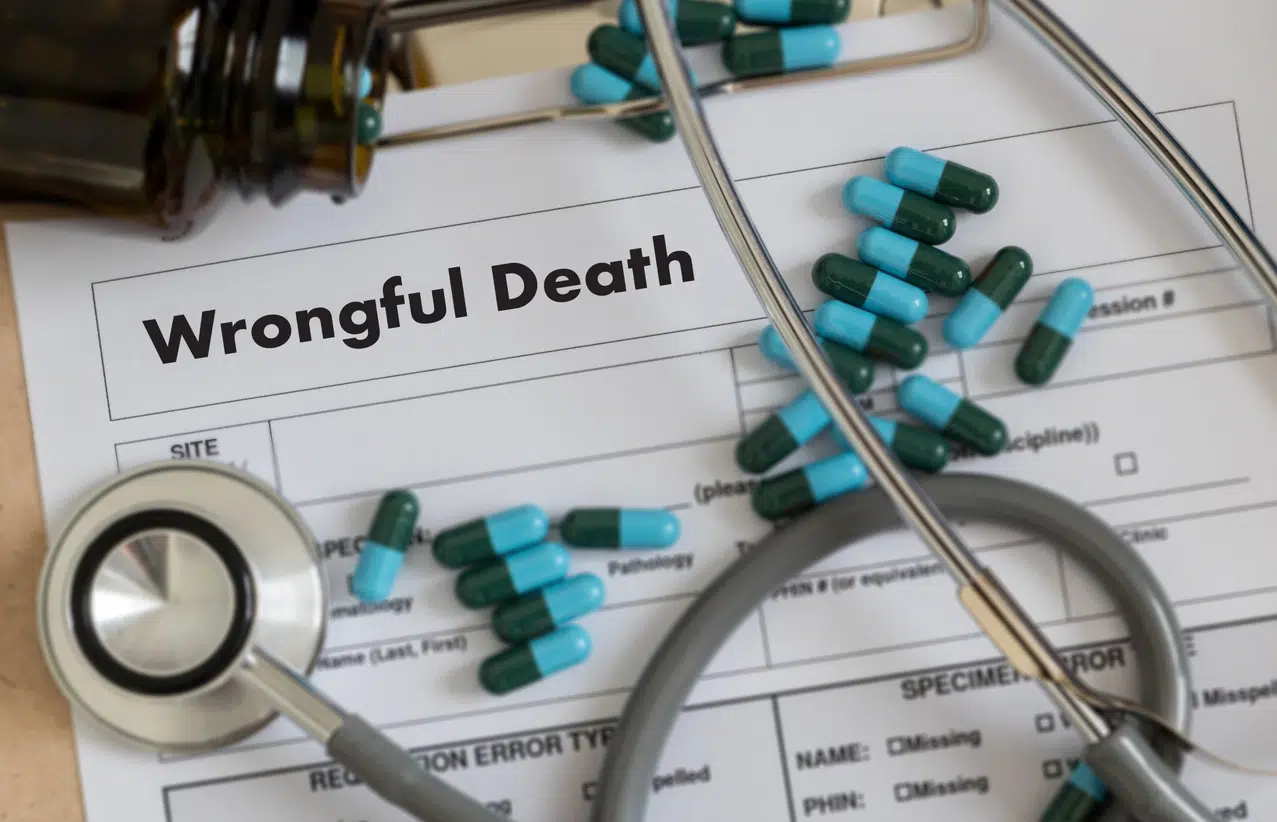Losing a loved one is painful. However, when that loss results from another person’s wrongful act or negligence, it’s even more wrenching. Surviving family members are left with staggering medical bills, funeral costs, burial expenses, and unimaginable grief. If the deceased was the family breadwinner, they also might struggle to afford basic living expenses.
If this is the situation you’ve found yourself in, it’s worth talking to a wrongful death lawyer. When you schedule a free consultation, one of the attorneys at Delfino Green & Green will discuss your circumstances with you and help you decide whether to pursue a wrongful death lawsuit.
Reasons for Wrongful Death Claims
Unfortunately, there are many possible ways for a person to suffer an injury leading to death. We have helped surviving family members seek justice on behalf of family members they’ve lost in a variety of different ways:
- Medical malpractice
- Work injuries
- Car accidents
- Defective products
- Unsafe premises
- Nursing home negligence
- Intentional acts
No matter how the death occurred, the goal of a wrongful death lawsuit is always the same: to hold the responsible party accountable while providing surviving family members the financial support they need to get through an incredibly difficult time.
When to File a Claim
In the immediate wake of an unexpected loss, you probably don’t have the capacity to talk to an attorney about pursuing a wrongful death settlement. However, you don’t have an infinite window of time to file a claim.
California’s statute of limitations on wrongful death civil cases is two years, meaning you have two years from the date of your loved one’s death to file a claim.
Many people, understandably, are not in a rush to file a claim. However, you shouldn’t wait until the last minute, either. An experienced attorney isn’t going to file a civil lawsuit as soon as you have your consultation — they first need to gather evidence to support your claim.
The stronger your claim, the greater your likelihood of receiving a settlement — and building a strong case takes time.
Parties Who Can File a Wrongful Death Suit
When talking about pursuing a wrongful death action, many people use the terms “loved ones” and “surviving family members.” However, in some cases, these terms are misleading.
In California, only people with certain relationships with the deceased person are eligible to file a wrongful death claim. Here’s a look at who may file a wrongful death claim (in order of priority):
- The surviving spouse
- The surviving child or children (or grandchildren, if all children have died)
- Any minors who lived with the deceased
- The parents of the deceased
- Other people eligible to inherit from the deceased’s estate
- The deceased’s next of kin
Sometimes, determining whether you’re eligible to file a wrongful death claim is a lot less straightforward than it seems. If you aren’t sure whether you can legally file a claim, there’s no need to worry — when you set up a free consultation with us, we can discuss your situation and help you determine whether you’re legally entitled to file a claim.
How a Wrongful Death Attorney Can Prove Fault
In a personal injury case, an attorney must prove that the plaintiff was severely injured and that that injury was caused by another person’s negligence. A wrongful death lawyer doesn’t need to assemble a detailed body of evidence to prove that your loved one is deceased.
However, in your wrongful death claim, they must prove that a particular person, group of people, or organization was directly responsible for the death.
In some cases (like deaths caused by intentional acts), proving fault isn’t complicated. However, in other cases, it can be a challenge. In California, your lawyer must prove four things in order to establish that another party is liable for your loved one’s death:
- The at-fault party had a “duty of care,” meaning they were obligated to act in a way that wouldn’t endanger your loved one
- They violated that duty
- The violation (called a “breach of duty”) was the direct cause of your loved one’s death
- You suffered damages as a result of your loved one’s death
Here’s a closer look at each of these provisions and how your lawyer may go about proving them.
The At-Fault Party Had a Duty of Care
When someone has a duty of care toward you, it means they are obligated to protect your safety. Although the phrase itself sounds formal, determining if someone has a duty of care is often a matter of common sense.
For example, each time you get behind the wheel, you have a duty to pay attention and obey traffic laws so you don’t endanger other drivers. Manufacturers have a duty to ensure the products they sell are safe, and business owners have a duty to maintain safe premises for employees and guests.
They Breached That Duty
Your lawyer doesn’t only have to prove that a particular party had a duty of care toward you. They also must prove that the at-fault party violated that duty.
For example, if your loved one was killed in a car accident and the driver was intoxicated at the time, your lawyer might point to the driver’s recorded blood alcohol concentration (BAC) as proof that they violated their duty of care to you and other drivers.
The Breach Caused Your Loved One’s Death
Proving causation is absolutely essential in a wrongful death case. Depending on the nature of the incident, your lawyer might use witness statements, police reports, and photos or videos of the accident to help prove that it was the actions of the defendant that directly caused the death of your loved one.
You Have Damages
In any personal injury or wrongful death case, your lawyer must prove that you suffered actual losses as a result of the event. This tends to be fairly easy to prove in the case of wrongful death, as losing a loved one always comes with emotional damage and nearly always comes with financial expenses.
The Damages You Could Receive From a Lawsuit
There are many types of damages you could receive from a wrongful death lawsuit. These losses can be divided into two broad categories: economic and non-economic damages.
Economic damages are financial losses you can easily assign a monetary value to:
- Cost of medical care before death
- Funeral expenses
- Loss of income
Some wrongful death damages are harder to value. They include more intangible losses like these:
- Pain and suffering
- Emotional distress
- Loss of consortium
Determining what damages you may be able to recover can be difficult. When you talk to a wrongful death lawyer at Delfino Green & Green, we can help you understand what your case may be worth. We’ll work diligently to ensure that your case includes all of your losses.
Can Wrongful Death Compensation Be Taxed?
Unfortunately, some portions of your wrongful death settlement may be taxed. The IRS says that compensation for emotional distress and other non-physical injuries can be taxed as income. However, tax law is complex, and when it intersects with personal injury law, it can prove to be very difficult for anyone who is not a lawyer to figure out.
When you work with a wrongful death lawyer, your attorney will be able to help you understand the tax implications of your settlement and ensure you file all tax forms properly.
Tell Us How We Can Help
Going through the legal process can be challenging, stressful, and upsetting. It’s even more so if you’re grappling with the recent loss of a loved one. At Delfino Green & Green, we’re committed to advocating for those who have lost a loved one while treating you with the care, compassion, and sensitivity you deserve.
Get in touch with us today for a free initial consultation with a wrongful death lawyer.



